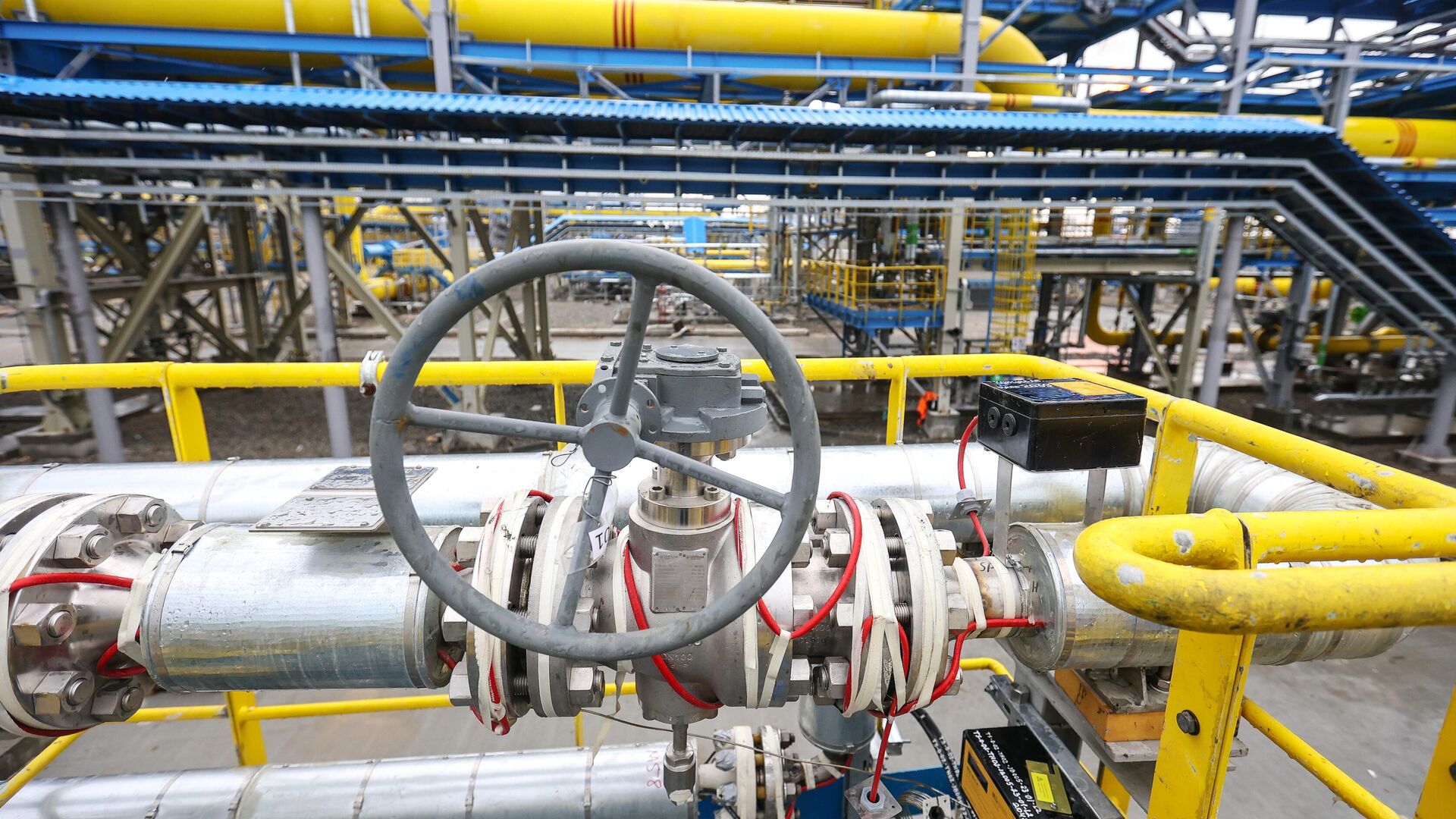https://sputnikglobe.com/20220401/russian-presidential-decree-on-ruble-payments-for-gas-goes-into-effect-on-friday-1094380398.html
Russian Presidential Decree on Ruble Payments for Gas Goes Into Effect on Friday
Russian Presidential Decree on Ruble Payments for Gas Goes Into Effect on Friday
Sputnik International
MOSCOW (Sputnik) - The Russian presidential decree stipulating that all contracts for pipeline gas deliveries with companies registered in "unfriendly"... 01.04.2022, Sputnik International
2022-04-01T06:05+0000
2022-04-01T06:05+0000
2022-04-01T06:05+0000
world
russia
gas
https://cdn1.img.sputnikglobe.com/img/07e5/0b/1a/1091047214_0:82:3349:1966_1920x0_80_0_0_42cd64cf91f2256f0fbd90f9274be717.jpg
Russian President Vladimir Putin signed the decree on Thursday, stipulating that all contracts for pipeline gas deliveries with companies registered in countries that have sanctioned Russia be settled in rubles. This only concerns Gazprom's pipeline exports and does not mean that some of the clients may end up without gas tomorrow. A source has told Sputnik, that the company has to receive first payments for some contracts in rubles in the second half of April and in May.Last week, the president tasked the government and the national energy giant Gazprom with arranging a switch of gas payments to rubles with countries that have imposed sanctions on Russia over the special military operation in Ukraine by the end of March.The move has already provoked criticism and confusion in the West, with various countries objecting and claiming it would be a breach of existing contracts. The G7 countries have already refused Russia's demand, as the German economy minister said earlier in the week.Experts from the Moscow-based think tank Institute for Energy and Finance (FIEF) have explained, however, that the decree would allow for uninterrupted transit without breach of sanctions or existing contracts, as it requires Gazprom's clients to switch to making payments through Gazprombank, which would take their euros, exchange them to rubles at the Moscow Exchange and deposit money at rubles accounts.Gas prices in Europe have grown in the last days of March, following the increasing geopolitical risks.After having rebuffed Moscow's initiative, Europe, which receives roughly 40% of its gas from Russia, is currently discussing ways to diversify gas supplies and move away from Russian gas through other suppliers.Brussels is also currently working with Washington to ensure that US liquefied natural gas exported to Europe is the least carbon-intensive possible, as the issue becomes even more important than before.Meanwhile, Spain and Portugal have already urged the European Commission to put a cap on gas prices in the two countries at 30 euros ($33) per megawatt-hour (MWh), which they expect to significantly reduce electricity bills.
russia
Sputnik International
feedback@sputniknews.com
+74956456601
MIA „Rossiya Segodnya“
2022
Sputnik International
feedback@sputniknews.com
+74956456601
MIA „Rossiya Segodnya“
News
en_EN
Sputnik International
feedback@sputniknews.com
+74956456601
MIA „Rossiya Segodnya“
Sputnik International
feedback@sputniknews.com
+74956456601
MIA „Rossiya Segodnya“
russia, gas
Russian Presidential Decree on Ruble Payments for Gas Goes Into Effect on Friday
MOSCOW (Sputnik) - The Russian presidential decree stipulating that all contracts for pipeline gas deliveries with companies registered in "unfriendly" countries be settled in rubles is set to go into effect on Friday.
Russian President Vladimir Putin signed the decree on Thursday, stipulating that all contracts for pipeline gas deliveries with companies registered in countries that have sanctioned Russia be settled in rubles. This only concerns Gazprom's pipeline exports and does not mean that some of the clients may end up without gas tomorrow. A source has told Sputnik, that the company has to receive first payments for some contracts in rubles in the second half of April and in May.
Last week, the president tasked the government and the national energy giant Gazprom with arranging a switch of gas payments to rubles with countries that have imposed sanctions on Russia over the special military operation in Ukraine by the end of March.
The move has already provoked criticism and confusion in the West, with various countries objecting and claiming it would be a breach of existing contracts. The G7 countries have already refused Russia's demand, as the German economy minister said earlier in the week.
Experts from the Moscow-based think tank Institute for Energy and Finance (FIEF) have explained, however, that the decree would allow for uninterrupted transit without breach of sanctions or existing contracts, as it requires Gazprom's clients to switch to making payments through Gazprombank, which would take their euros,
exchange them to rubles at the Moscow Exchange and deposit money at rubles accounts.
Gas prices in Europe have grown in the last days of March, following the increasing geopolitical risks.
After having rebuffed Moscow's initiative, Europe, which receives roughly 40% of its gas from Russia, is currently discussing ways to diversify gas supplies and move away from
Russian gas through other suppliers.
Brussels is also currently working with Washington to ensure that US liquefied natural gas exported to Europe is the least carbon-intensive possible, as the issue becomes even more important than before.
Meanwhile, Spain and Portugal have already urged the European Commission to put a cap on gas prices in the two countries at 30 euros ($33) per megawatt-hour (MWh), which they expect to significantly reduce electricity bills.


